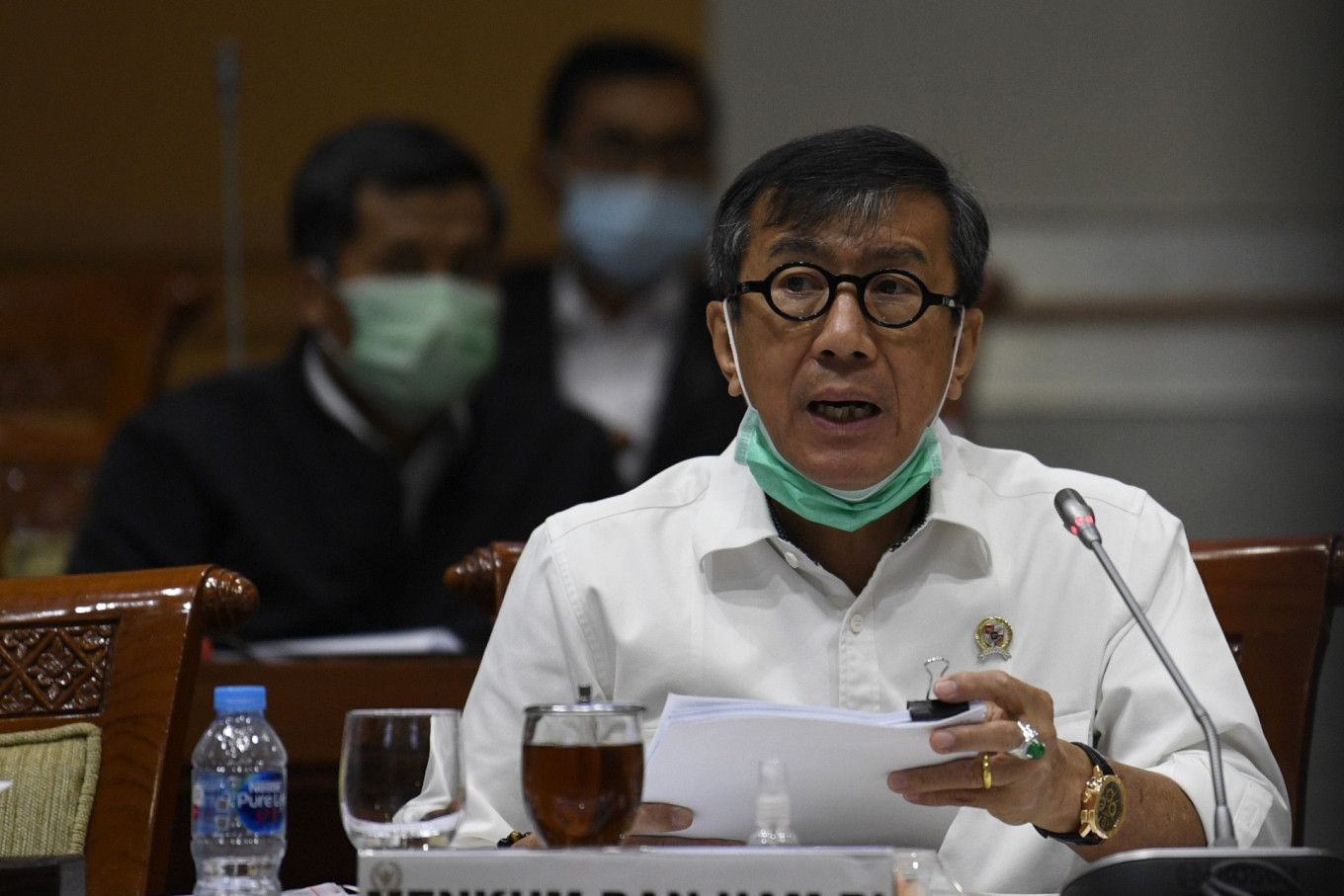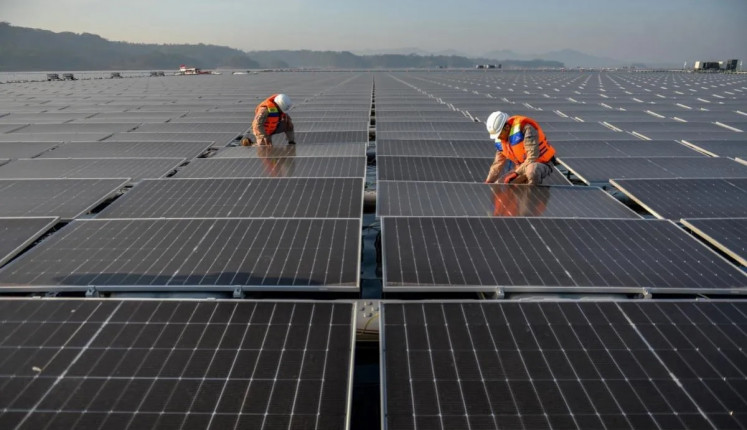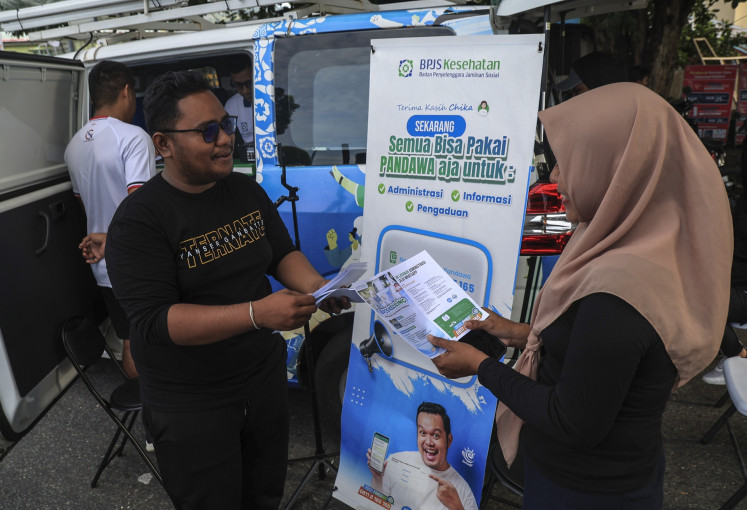Popular Reads
Top Results
Can't find what you're looking for?
View all search resultsPopular Reads
Top Results
Can't find what you're looking for?
View all search resultsRecovering stolen assets
The government’s failures over the past two decades in tracing and recovering stolen assets from Switzerland have shown that what are legally acknowledged as criminal acts and tax fraud in Indonesia and Switzerland are not entirely the same.
Change text size
Gift Premium Articles
to Anyone
T
he government can now trace and hope to recover billions of dollars of stolen assets believed to be hidden in Switzerland, formerly notorious as a tax haven, by corrupt Indonesian people and tax evaders over the past decades.
This asset recovery can be realized after the House of Representatives ratified on Tuesday the Indonesia-Swiss Treaty on Mutual Legal Assistance (MLA) in Criminal Matters. Implementing regulations should be enacted soon to make the law fully effective.
The long-awaited agreement, which was initiated in 2010, will serve as the legal basis for the two countries to cooperate in detecting, freezing and confiscating assets gained through such crimes as corruption, drug trafficking and money laundering.
Read also: Indonesia passes mutual assistance treaty with Switzerland into law
The MLA will simplify and accelerate mutual legal assistance procedures, in particular by reducing formal requirements and setting out in detail the requirements for mutual assistance requests.
Yet more significant is that both countries agreed to apply a retroactive clause in the agreement, meaning that it can be used to handle criminal acts committed decades ago, especially in 1967-1998, when Indonesia was under an authoritarian and perceived to be corrupt administration.
The government had earlier signed similar MLA agreements with Hong Kong, China, ASEAN, Australia, China, South Korea, India, Vietnam, United Arab Emirates and Iran.
The MLA will further strengthen the authority of the Directorate General of Taxation to search or track Indonesians and their illicit assets hidden in Switzerland because the government also has signed and ratified the global treaty of Automatic Exchange of Information (AEI) on tax matters.
Tax auditors have been able since September 2018 to check with tax authorities in Singapore, Hong Kong and other countries on whether Indonesians had complied with their tax obligations. Yet more encouraging, banking secrecy has been removed by Law No.9/2017, which authorizes tax officials to access all the financial accounts of taxpayers.
But the tax office still needs to strengthen its intelligence unit to cross-check information with other ministries and government agencies within the country and the tax authorities in the countries suspected to be popular havens for Indonesians to conceal their assets.
Read also: Indonesia-Swiss MLA: Tool to combat tax crime, recover stolen assets
Pursuing illicit funds through such MLA or AEI mechanism often can still be difficult if government investigators are unable to connect the assets discovered with the actual criminal activity. This can be especially challenging given that financial and technical resources to trace funds through complex financial systems are often limited.
The government’s failures over the past two decades in tracing and recovering stolen assets from Switzerland have shown that what are legally acknowledged as criminal acts and tax fraud in Indonesia and Switzerland are not entirely the same.
Hence, it is most imperative that the government use more assistance from the United Nations/World Bank Stolen Asset Recovery (StAR Initiative), which was launched in 2007, to help law enforcement authorities develop the legal framework and institutional expertise to recover stolen assets. Under the StAR initiative, the World Bank has been building institutional capacity in developing countries to strengthen their prosecuting agencies.










